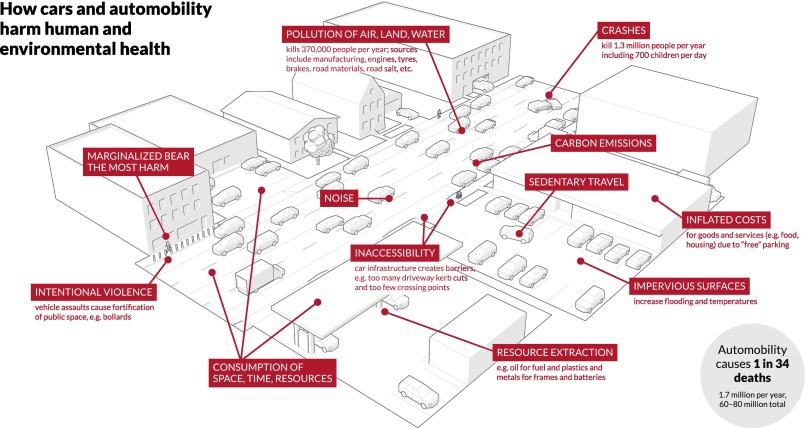Highlights
- Summarises car-related harm including crashes, pollution, land use, and injustices.
- 1 in 34 deaths are caused by cars and automobility with 1,670,000 deaths per year.
- Cars and automobility have killed 60–80 million people since their invention.
- Car harm will continue unless policies change; example interventions are discussed
Despite the widespread harm caused by cars and automobility, governments, corporations, and individuals continue to facilitate it by expanding roads, manufacturing larger vehicles, and subsidising parking, electric cars, and resource extraction. This literature review synthesises the negative consequences of automobility, or car harm, which we have grouped into four categories: violence, ill health, social injustice, and environmental damage. We find that, since their invention, cars and automobility have killed 60–80 million people and injured at least 2 billion. Currently, 1 in 34 deaths are caused by automobility. Cars have exacerbated social inequities and damaged ecosystems in every global region, including in remote car-free places. While some people benefit from automobility, nearly everyone—whether or not they drive—is harmed by it. Slowing automobility’s violence and pollution will be impracticable without the replacement of policies that encourage car harm with policies that reduce it. To that end, the paper briefly summarises interventions that are ready for implementation.



But have you seen how many people dihydrogen monoxide kills every year?
This isn’t a science post, it’s a political agenda post.
It must be awful to live in a place where scientific study into human well being is political.
It sounds like some undeveloped country where you can’t drink the tap water.